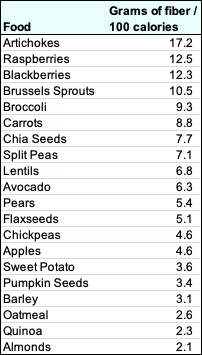
Key takeaways:
As Alzheimer's disease continues to impact millions globally, the scientific community is increasingly focusing on the gut-brain axis. This complex communication network, which links the gastrointestinal tract and the brain, could play a major role in preventing cognitive decline. Recent discoveries1 have shown that gut microbiota might affect everything from brain development to behavior to disease states, and researchers are starting to explore how the gut-brain axis can influence dementia risk.
Exploratory study: A closer look at fiber's impact on aging brains
The School of Life Course & Population Sciences at King’s College London spearheaded a pivotal double-blind study2 (the same type of study as used for clinical trials) with participants over 60 years old. Their research aimed to uncover the cognitive effects of consuming prebiotic fibers compared to a placebo.
Fiber fuels cognitive fortitude
Like any organism, the components making up the gut microbiome need food to survive. One source of nutrients for them is prebiotic fibers, such as inulin and fructooligosaccharides (FOS), both of which were the focus of the King’s College study. The researchers found that participants who took prebiotic supplements had more of one species of healthy bacteria called Bifidobacterium in their gut. This species has previously been linked to better cognitive performance, and indeed the participants who took supplements showed improved cognitive function scores through the same memory tests that are used as an early indicator of Alzheimer’s disease.
Why is this happening?
The composition of the gut microbiome has drastically changed over human history. Advances in agriculture, industrialization and globalization may have caused a decrease in gut microbial diversity, which has been associated with worse health outcomes. In particular, a review of multiple studies1 suggests that changes in the microbiome can lead to behavioral changes. In another study3 comparing 25 patients diagnosed with Alheimer’s disease to 25 healthy individuals, those with Alzheimer’s were found to have reduced gut microbial diversity.
Keeping an eye on your intake
Let’s get specific. Women should aim to consume 21-25g of fiber per day. Men should aim for 30-38g4. Here is a list of some common fiber-dense foods to consider adding into your diet.

A promising path to cognitive health
Emerging evidence connecting dietary habits, gut microbiota, and brain function highlights a novel approach to combat Alzheimer’s disease. The gut-brain axis is still a new area of research - there is much we don’t know, and many researchers around the world are investigating the different ways in which the microbiome influences our brain health. Such studies not only pave the way for innovative therapeutic avenues but also emphasize the profound impact our diet can have on mental and overall health.
Putting the science in action
- Eat enough fiber each day to make sure you are nourishing your gut microbiome. Women should strive for 21-25g daily, while men should aim for 30-38g.
- Learn more about the importance of your gut health on your brain and body through the Peter Attia Drive podcast.some text
- Episode #215 goes in-depth on the GI system - skip to 34:30 for ways in which the gut and brain communicate, and to 1:55:00 for ways to promote your gut microbiome using your nutrition.
- Episode #283 discusses the microbiome specifically - learn more about the importance of fiber at 38:30 and about the gut-brain axis at 50:15.

